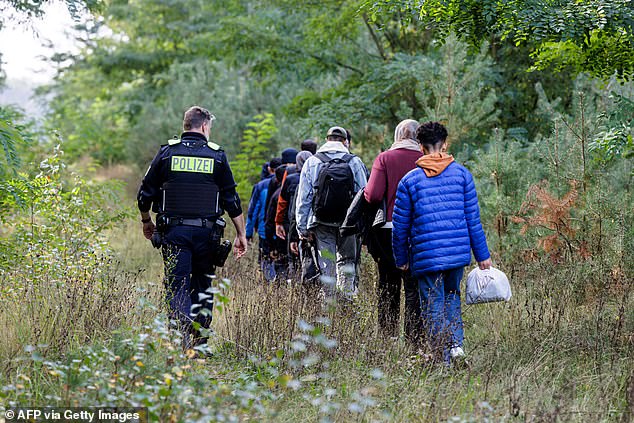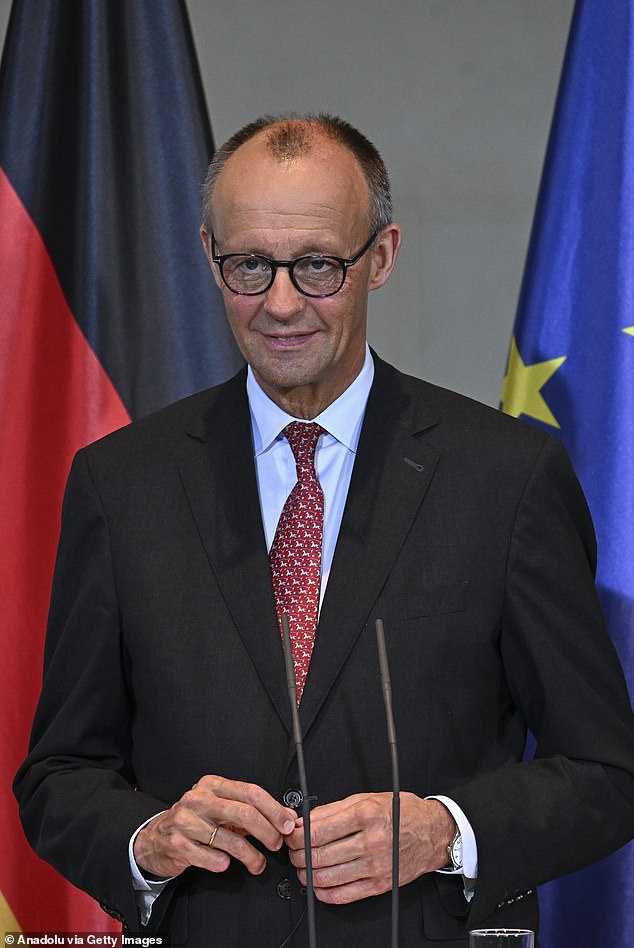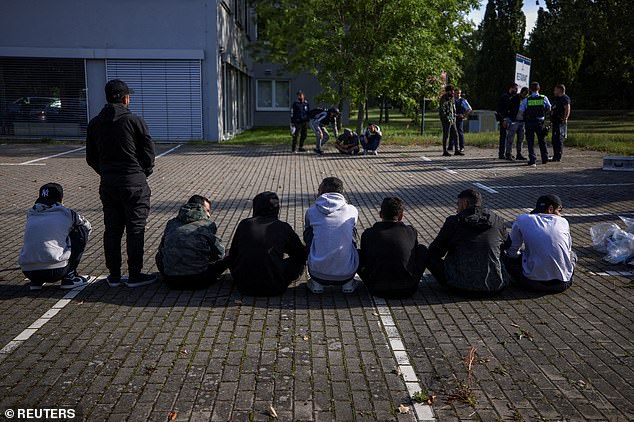Published: | Updated:
The German government says a dip in the number of people seeking asylum is proof that its strict migration policies are working.
According to figures, the number of people applying for asylum in Germany for the first time fell by more than half in the first six months of the year.
There were just over 70,000 applications between January and July, compared to nearly 141,000 during the same period last year.
Interior Minister Alexander Dobrindt said: ‘We have massively reduced the number of initial asylum applications compared to last year.’
The drop has been seen as a big success for Chancellor Friedrich Merz’s conservative government, which promised to crack down on illegal immigration and speed up deportations.
The coalition is putting pressure on the EU to bring in stricter rules, including fewer appeal options for failed asylum seekers and faster returns to their home countries.
Dobrindt told the Bild am Sonntag newspaper: ‘We want procedures at the EU’s external borders, faster decisions and consistent returns.’
‘We are declaring an even tougher fight against the smugglers, because the state must regulate who comes into our country, not the criminal smuggling gangs.’

But the government’s policies have come under scrutiny, with some critics saying it breaks European Union rules and puts pressure on the bloc’s visa-free travel zone.
EU data shows Spain has now overtaken Germany as the most popular destination for asylum seekers.
That change is partly due to fewer Syrians applying for refuge, following the collapse of the Assad regime.
In Germany alone, overall asylum claims dropped to 9,900 in May, compared to 18,700 during the same month last year.
A major reason for the decline has been the introduction of tough new border controls. Asylum seekers without valid entry papers can now be turned away at the German border.
The policy was one of Merz’s key election promises and was introduced as one of the first changes under his new government earlier this year.
But the new checks have sparked controversy across Europe, as they go against the rules of the Schengen area, which makes way for passport-free travel across much of the EU.
Germany is now carrying out border checks with Poland, Switzerland, Austria, France, the Czech Republic, Denmark, and the Netherlands.


On Sunday, Poland said it would extend its own border checks until October. The measures were first brought in this July, following pressure from far-right vigilante groups that began stopping migrants at illegal checkpoints.
Across the EU, illegal migration has become one of the most divisive conversations. In Germany, the hard-right party Alternative for Germany (AfD) continues to enjoy a rise in polling.
The party is known for its hardline stance on migration and has promised mass deportations if it comes to power.
A new poll published showed it’s now at 25 percent, just behind Merz’s Christian Democratic Union on 27 percent. Support for the chancellor’s coalition has dropped to 42 percent.
Germany, Italy and Denmark are all pushing the EU to make it easier to deport people whose asylum claims are rejected.
According to data, up to 80 percent of people whose asylum claims have been rejected continue to remain and have not been deported, including dangerous criminals.
Before taking office earlier this year, Merz criticised the country’s immigration figures, saying it needed to ‘significantly come down. Illegal immigration was putting a strain on public services and towns, he said.
Speaking on a German talk show, he said: ‘It can no longer be a six-digit figure – towns, communities, schools, hospitals and infrastructure are overwhelmed.’

He added: ‘There has been a lot of change in Europe. Many attempts [at change] failed in Germany, however, in recent years. Going forward, this will no longer be the case.’
When he came into power, he immediately scrapped former Chancellor Angela Merkel’s open-door policy.
Under the former leader’s watch, hundreds of thousands of migrants fleeing regimes such as Assad’s were welcomed into the country.
In April, a court ruled that single able-bodied men arriving from Greece would be deported back to the country as they could cope.








